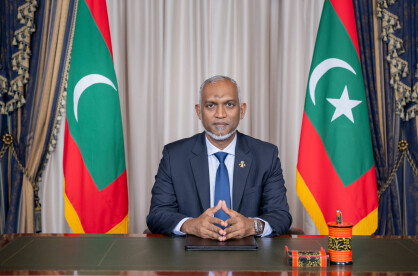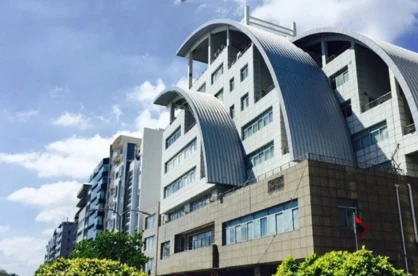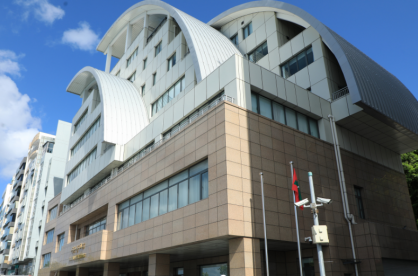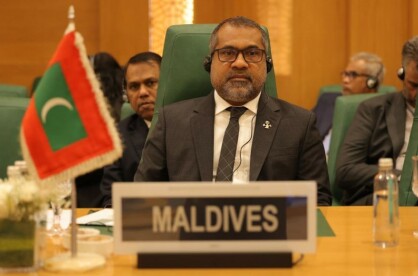On zero tolerance
The failure to bring the seemingly convoluted saga to a justifiable end might be much simpler than it is presented to be.

MFR Image
The failure to bring the seemingly convoluted saga to a justifiable end might be much simpler than it is presented to be.

MFR Image
On 9 June 2021, the Anti-Corruption Commission (ACC) forwarded a case alleging corruption against the Minister of Youth, Sports and Community Empowerment Ahmed Mahloof for prosecution to the Prosecutor General's Office. The allegations against him are for accepting a bribe of USD33,000 in return for voting on the Special Economic Zone bill as well as for remaining with the Progressive Party of Maldives. President Ibrahim Mohamed Solih then ordered Mahloof to step aside from his duties as Minister until a decision is made by the Prosecutor General's Office.
Following the publication of the Report on the MMPRC corruption by the Parliament on 12 May 2021, Minister Mahloof on 18 May 2021 said that he would resign immediately if his case was ever sent for prosecution. The report includes 281 names of individuals and companies alleged to have received embezzled funds from the MMPRC. In addition to Minister Mahloof, the report includes the names of current MPs belonging to Solih’s MDP, a state minister in the present government, and MPs from the opposition.
This publication in an earlier edition explained how more than USD78 million was stolen from the state through the MMPRC by then Tourism Minister Ahmed Adeeb Abdul Ghafoor, who later became Vice President.
As the country, with its independent judiciary and parliament as well as the investigative authorities, has not been able to properly deliver the swift justice promised by Solih during his campaign, with 100 percent of the embezzled funds still unrecovered, MFR looks back at the chronology of major events of the scheme.
President Mohamed Nasheed was arrested in February 2015 by the Yameen administration on charges of the abduction of a Criminal Court Judge in 2012 while he was president. Nasheed was then sentenced, through an admittedly rushed trail, to a 13 year jail term in March 2015.
Nasheed’s arrest posed a major setback to the ongoing political activism against Yameen, as this created a deep leadership vacuum in the MDP. For this reason, there were continuous efforts by the party, led by the then parliamentary group leader Ibrahim Mohamed Solih, on negotiating with the government for Nasheed’s release.
On 24 July 2015, the MDP issued a press statement with details of some of the discussions the leadership of the party had had with the Yameen Administration. As per the statement, MDP was called upon to make some key concessions:
On 29 July 2015 local newspaper Sun reported that there were ongoing negotiations between the government and the MDP Parliamentary Leader, Solih. Later, the same newspaper published an image of the letter that the publication claim was provided by the government, stating that the remainder of Nasheed’s sentence would be served at his home. Nasheed’s legal team further said that the government had made assurances, on 19 July 2015, that this letter would be issued.
As per the newspaper article, MDP said that they have been in discussions, and negotiation, with the government since Nasheed was taken to prison in March of 2015. The discussions were led by the Parliamentary group leader, MP Ibrahim Mohamed Solih. Solih, as the lead for MDP, was engaged through two main channels; direct discussions with Tourism Minister Adeeb, and Home Minister Umar Naseer.
As part of the negotiations, the government agreed to transfer Nasheed home initially for two days, which would then be extended to a further eight weeks, followed by a permanent transfer, and by 26 July 2015, a full pardon. In return, MDP had agreed to cooperate in the implementation of the Yameen Administration’s economic and political agenda.
Nasheed was in fact transferred to his home on 23 June 2015 for a period of eight weeks. The MDP parliamentarians, on instructions from their Parliamentary Leader Ibrahim Mohamed Solih, did vote for the amendment to the Constitution, paving the way for Adeeb to become the Vice President — they voted to oust then Vice President Mohamed Jameel, and appoint Ahmed Adeeb Abdul Gafoor.
While knowing that Adeeb played a central role in corruption, and all political imprisonment of opposition political leaders, the MDP leaders colluded with the Yameen Administration in implementing their economic and political agenda — President Nasheed himself would, later in 2019, go on to say in public that Adeeb was intentionally installed, by himself and the MDP, within the Yameen government.
President Nasheed was taken back to prison on 23 August 2015 after remaining in house arrest for two months.
On 10 October 2015 Indian External Affairs Minister Sushma Swaraj, visited the Maldives and met with President Yameen. The Indian Express then reported that the Minister discussed the release of President Nasheed from prison.
Soon afterwards, Nasheed was allowed to travel to the UK on the pretext of medical leave, and remained there until the presidential election in late 2018.
Ibrahim Mohamed Solih was nominated as the presidential candidate of the united opposition movement, and was elected President in November 2018.
As a first order of business Solih empaneled a presidential commission on assets recovery and announced a “zero tolerance policy” on corruption.
In February 2019, the Anti corruption commission (ACC), published a detailed report on the MMPRC corruption, with Minister Mahloof and State Minister Akram Kamaludeen’s names unambiguously blazoned upon it — Solih temporary relieved both from their duties; however, they were later, to the quiet outrage of many and the surprise of very few, promptly reinstated.
Zero tolerance may be a catchy term, and admittedly has garnered the attention of international partners, and, now more to parodic effect, the local public as well. However, if past events are any indication, as well as the close association of then-opposition members and those in the Yameen government, there is dwindling hope as to whether there will ever be a proper, unbiased investigation into the MMPRC corruption scandal.
All of the key actors and facilitators of the the scam, except for former president Yameen, remain free — almost exclusively through the political impunity of the current administration — while all political parties have key figures directly and indirectly embroiled in this despicable scandal. Add to this the political give and take facilitated, and necessitated, around this scandal, it becomes abundantly clear that any “justice” that the public sees will be one that is politically expedient to the powers that reign as opposed to real justice and tangible recovery of assets.



